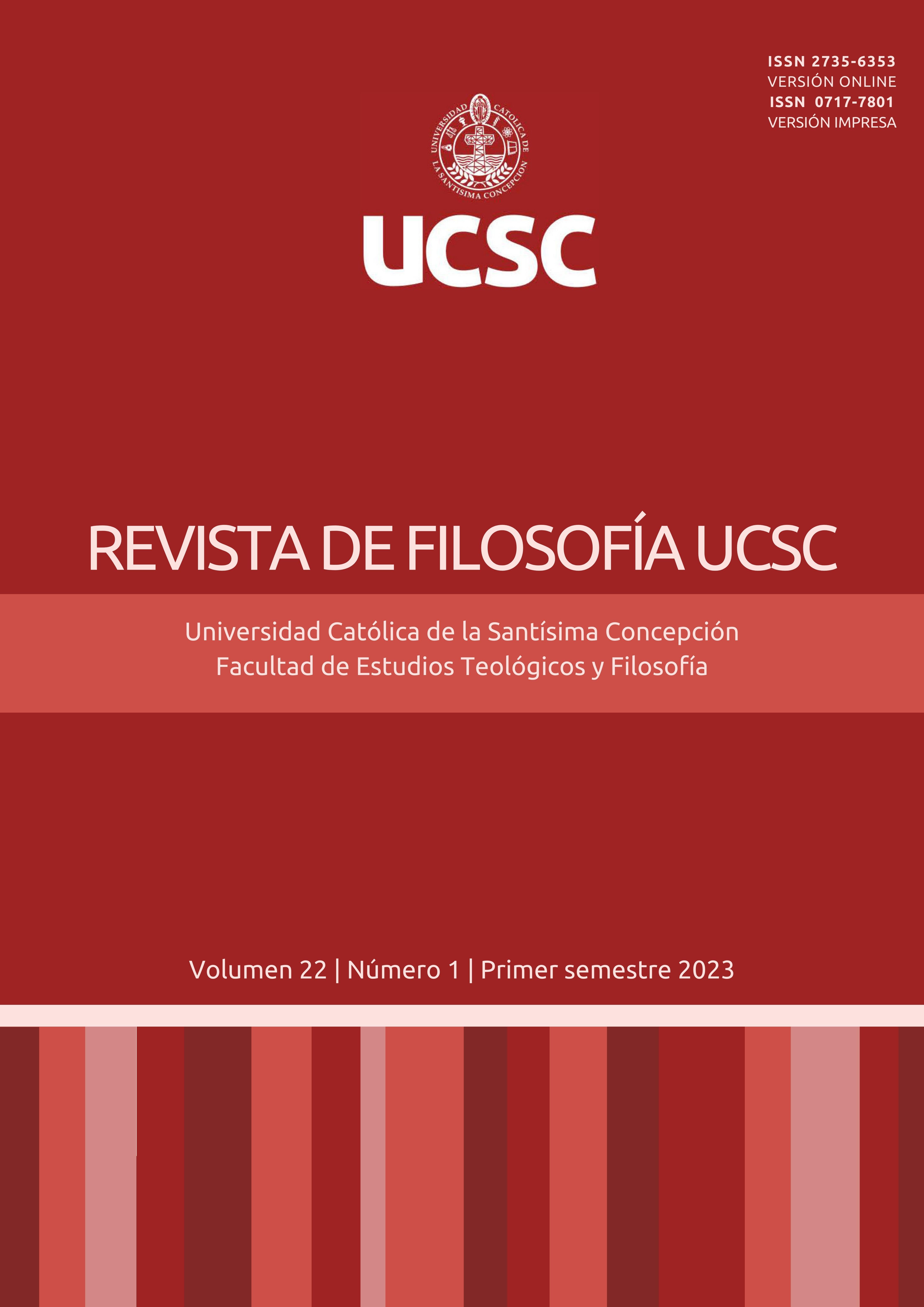The lie as a sign of the appraisal of imagination in Hannah Arendt
Main Article Content
Abstract
The figure of the "genius" is necessary to understand, by analogy, how the Arendtian actor can exclude the possibility of lying and destroying the sphere of human affairs without undermining the capacity for action and the realization of political freedom, just as the Kantian genius cannot exclude the possibility of producing disgust (Ekel) in viewers without undermining the ability to produce works of art that can be judged as beautiful by them. By exposing this aporia of the productive imagination, I will show the reasons why Hannah Arendt conceived the need for a political thought that, through exemplary judgments, illustrates the actor's inherent vulnerability to political action. The actor should emulate the genius in this regard, that is, expose themselves to the taste of the audience to regulate those "excesses" or "vices" that disgust and that, in one of its political transpositions, we call "the lie".
Downloads
Article Details

This work is licensed under a Creative Commons Attribution-NonCommercial 4.0 International License.
The Revista de Filosofía UCSC is an open access journal and does not charge for publication. In addition, it regulates its Copyright and access policy according to the Creative Commons Attribution-NonCommercial 4.0 International Public License (CC BY-NC 4.0), therefore sharing (reproducing and distributing the material in any medium or format) and adaptation (modifying, transforming, and creating from the material) is allowed as long as proper credit is given and the citation is included with the corresponding data. Moreover, it is not allowed to use the material for commercial purposes.
References
Arendt, H. (2012) Sobre la revolución, Madrid, Alianza.
Arendt, H. (2011) Eichmann en Jerusalén, Barcelona, DeBOLS!LLO.
Arendt, H. (2010), La vida del espíritu, Buenos Aires, Paidós.
Arendt, H. (2009), Conferencias sobre la filosofía política de Kant, Buenos Aires, Paidós.
Arendt, H. (2005), La condición humana, Barcelona, Paidós.
Arendt, H. (1998), “La mentira en política” en Crisis de la República, Madrid, Taurus, pp. 11-41.
Arendt, H. (1996), “Verdad y política” en Entre el pasado y el futuro, Barcelona, Ediciones Península, pp. 239-277.
Beiner, R. & Nedelsky, J. (2001) Judgment, Imagination, and Politics: Themes from Kant and Arendt (Beiner; Nedelsky Ed.), USA, Rowman & Littlefield Publishers.
Beiner, R. & James Booth, W. (1996) Kant and Political Philosophy: The Contemporary Legacy, Revised Edition (Beiner; James Booth Ed.), USA: Yale University Press.
Benhabib; S. (2003) The Reluctant Modernism of Hannah Arendt, Revised Edition, USA; Rowman & Littlefield Publishers.
Bernstein, R. J. (2018) Why Read Hannah Arendt Now?, UK, Polity.
Birulés, F. (2018) Hannah Arendt. El orgullo de pensar (Birulés Ed.), Barcelona, Gedisa.
Birulés, F. (2009) Una herencia sin testamento: Hannah Arendt, Madrid, Herder.
Derrida, J. (2012) Histoire du mensonge. Prolégomènes, Paris, Éditions Galilée.
Escudero, A. (1995) “Genio y gusto en la estética kantiana” en Anales del Seminario de Metafísica, Nº 29, Servicio de Publicaciones, Universidad Complutense, Madrid, pp. 223-233.
Forti, S. (2001) Vida del espíritu y tiempo de la polis. Hannah Arendt entre filosofía y política, Madrid, Cátedra.
Guyer, P. (2003) Kant's Critique of the Power of Judgment: Critical Essays (P. Guyer Ed.), USA, Rowman & Littlefield Publishers.
Heuer, W. (2012), “La acción política según Hannah Arendt como esbozo de imágenes” en Lecturas de Arendt: Diálogos con la literatura, la filosofía y la política (Smola; Bacci; Hunziker; Ed), Córdona, Editorial Brujas, pp. 161-174.
Kant, I. (1902ss) Kant’s gesammelte Schriften, hrsg. von der Königlich Preussischen, bzw. der Deutschen Akademie der Wissenschaften, Berlín et alia. -(2012) Crítica del discernimiento [Kritik der Urteilskraft, 1790], traducción de R. Rodríguez Aramayo y S. Mas, Madrid, Alianza Editorial.
Makkreel, R. A. (1995) Imagination and Interpretation in Kant: The Hermeneutical Import of the Critique of Judgment, USA, University of Chicago Press.
Martínez, L. (2015) “Una función del genio en la deducción del principio a priori de los juicios de gusto” en Kant y el criticismo. Presente, pasado, ¿futuro? (Órdenes; Alegría, Ed.), Porto Alegre, Editora Fi, pp. 142-153.
Molina Flores, A. (2001) Doble teoría del genio, Sevilla, Universidad de Sevilla Ediciones.
Oyarzún, P. (2008) “Extraña sensación, Kant sobre el asco” en Methodus Nº3, pp. 7-21.
Rivera de Rosales, J. (2005) “Kant y Hannah Arendt. La comunidad del juicio reflexionante” en Ideas y Valores, Nº 128, Bogotá, pp. 1-33.
Sheehan, N. & Smith, H. & Kenworthy, E. (2017) The Pentagon Papers. The Secret History of the Vietnam War, USA, Racehorse Publishing.
Thompson, M.L. (2013) Imagination in Kant's Critical Philosophy (Thompson Ed.), Berlin, De Gruyter.
Young-Bruehl, E. (2004) Hannah Arendt: For Love of the World, Second Edition, USA, Yale University Press.
Zerilli, L. (2005), “WE FEEL OUR FREEDOM”: Imagination and Judgment in the Thought of Hannah Arendt. POLITICAL THEORY, Vol. 33 (2), pp. 158-188.




